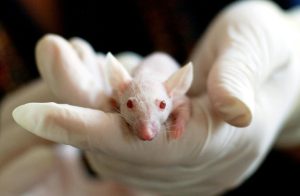Familial Trauma and Your Genetics

Image Source: https://mspmag.com/health-and-fitness/how-our-bodies-keep-track-of-trauma/ (shutterstock)
Within the complex tapestry of human genetics lies a narrative that extends beyond individual lifetimes - a story shaped by the collective experiences of our ancestors. This concealed tale is intricately and discretely woven into the structure of our DNA. Recent research unveils the significant influence of familial trauma on current health and well-being.
This is the interesting world of epigenetics; an exploration into how our environment influences our genetic expression. In the past years, there have been multiple researchers studying how our ancestors’ trauma might have an effect on our DNA and genetic expression. From the transmission of responses to disease susceptibility, each new study offers a glimpse into the interconnectedness of our past and present selves.
Rachel Yehuda, an esteemed professor of psychiatry and neuroscience and the director of the Center for Psychedelic Psychotherapy and Trauma Research at the Icahn School of Medicine at Mount Sinai, conducted a slew of studies relating to this topic. Her research hones in on Holocaust survivors and their children, and 9/11 survivors and their children. Her research yielded an interesting result.
After the 9/11 attacks, 187 pregnant women that were exposed to the toxins due to the building collapse, were monitored by Yehuda and her team. They specifically looked to see if these women developed PTSD, but more than that, they were curious to see how their unborn children were affected. 9 months later some of these women came back for a wellness check with their infants. Unfortunately, a significant number of these women had developed post-traumatic stress disorder (PTSD), and those who had PTSD “unusually low levels of the stress-related hormone cortisol” (Yehuda). When her team did saliva swabs of the infants whose mothers had PTSD, they found that the infants too had low cortisol levels. This provided direct evidence that trauma and environment could influence a child even before they were born.
Low cortisol levels are crucial to the fight or flight response, a mechanism enabling the body to react to stress. As the “stress hormone”, cortisol aids in mobilizing energy reserves and preparing the body for action. When cortisol levels are low, the body may struggle to regulate blood sugar levels, impairing its ability to provide energy to muscles during stressful situations. Additionally, low cortisol levels can weaken immune functions, increasing susceptibility to infections. Furthermore, cortisol helps to regulate inflammation, and low levels may lead to an exaggerated inflammatory response, potentially causing tissue damage.
Epigenetictist study gene regulation through mechanisms like methylation where methyl groups attach to DNA or chromatin, affecting gene expression. Methylation acts as a roadblock on the DNA highway, altering RNA, and transcription, while less enhances it, with these changes persisting through cell division and necessitating specific enzymes for removal.
In 2015, Yehuda and her team were able to pinpoint a specific gene that was affected by PTSD. They noticed that there was reduced methylation in a crucial portion of the NR3CI gene. This gene “encodes the glucocorticoid receptor, likely increasing the sensitivity of these receptors” (Yehuda). This epigenetic alteration offers insight into how trauma could influence cortisol regulation. The body manages stress through a complex feedback system: elevated cortisol levels signal a reduction in hormone production, potentially increasing the quantity and sensitivity of glucocorticoid receptors. However, sustained trauma responses may cause recalibration of this feedback loop. Individuals who have experienced trauma responses may exhibit heightened sensitivity in their stress systems and lower cortisol levels, potentially amplifying their adrenaline response to subsequent trauma and contributing to the development of PTSD.
When Yehuda and her team studied Holocaust survivors, they found that those whose mothers had PTSD, tended to exhibit lower cortisol levels and heightened sensitivity in glucocorticoid receptors, reflecting similar patterns observed in maternal survivors. However, offspring of fathers with PTSD show contrasting effects, which suggests that the sex of the traumatized patient may influence epigenetic alterations in children. Studies also reveal lower methylation within the glucocorticoid receptor receptor gene, NR3C1, in offspring of maternal PTSD survivors, while paternal PTSD is associated with increased methylation. These findings suggest that PTSD in parents may lead to different epigenetic changes in children, with potential implications for stress response and mental health.
These studies are immensely significant because they illuminate how trauma can impact not only an individual but also their descendants across generations. By delving into how trauma alters gene function and its transmission through generations, scientists gain crucial insights. This deeper understanding sheds light on why some individuals may grapple with mental health issues, even without direct trauma exposure. Moreover, it guides the development of more effective support systems for individuals and their families navigating challenging circumstances. Additionally, this research challenges traditional notions of inheritance, underscoring the enduring influence of ancestral experiences. Ultimately, it offers hope for breaking the cycle of trauma and fostering resilience amidst adversity.
Works Cited
Carey, Benedict. “Can We Really Inherit Trauma?” The New York Times, 10 December 2018, https://www.nytimes.com/2018/12/10/health/mind-epigenetics-genes.html. Accessed 15 April 2024.
Johnson, Sara, and Sonny Albarado. “Understanding epigenetics: how trauma is passed on through our family members • Arkansas Advocate.” Arkansas Advocate, 5 July 2023, https://arkansasadvocate.com/2023/07/05/understanding-epigenetics-how-trauma-is-passed-on-through-our-family-members/. Accessed 15 April 2024.
Yehuda, Rachel. “How Parents' Trauma Leaves Biological Traces in Children.” Scientific American, 1 July 2022, https://www.scientificamerican.com/article/how-parents-rsquo-trauma-leaves-biological-traces-in-children. Accessed 15 April 2024.



beautiful writing